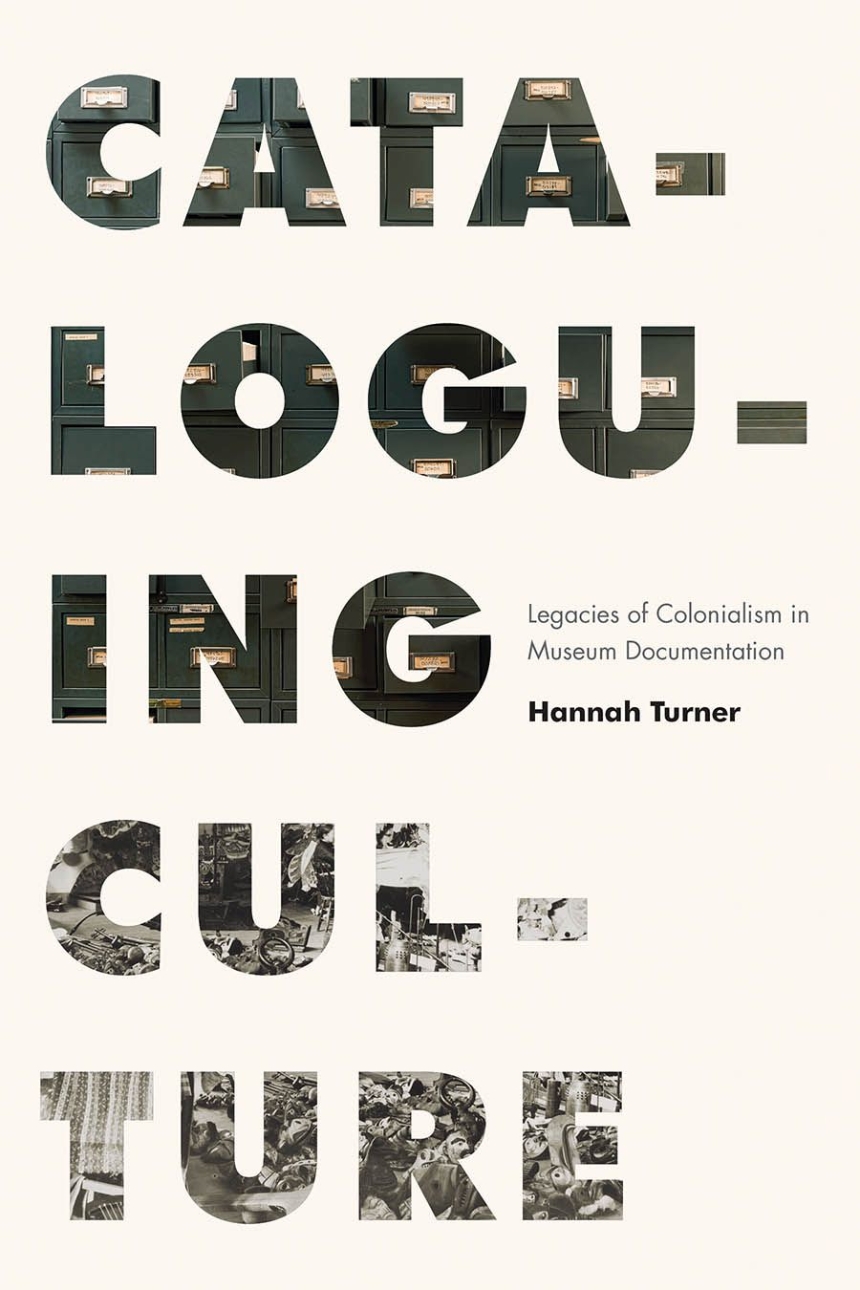University of British Columbia Press
Cataloguing Culture
Legacies of Colonialism in Museum Documentation
9780774863933
Distributed for University of British Columbia Press
Cataloguing Culture
Legacies of Colonialism in Museum Documentation
How does material culture become data? Why does this matter, and for whom? As the cultures of indigenous peoples in North America were mined for scientific knowledge, years of organizing, classifying, and cataloging hardened into accepted categories, naming conventions, and tribal affiliations—much of it wrong.
Cataloguing Culture examines how colonialism operates in museum bureaucracies. Using the Smithsonian’s National Museum of Natural History as her reference, Hannah Turner organizes her study by the technologies framing museum work over 200 years: field records, the ledger, the card catalog, the punch card, and eventually the database. She examines how categories were applied to ethnographic material culture and became routine throughout federal collecting institutions. As indigenous communities encounter the documentary traces of imperialism while attempting to reclaim what is theirs, this timely work shines a light on the ongoing colonization of this cultural heritage in the archive.
Cataloguing Culture examines how colonialism operates in museum bureaucracies. Using the Smithsonian’s National Museum of Natural History as her reference, Hannah Turner organizes her study by the technologies framing museum work over 200 years: field records, the ledger, the card catalog, the punch card, and eventually the database. She examines how categories were applied to ethnographic material culture and became routine throughout federal collecting institutions. As indigenous communities encounter the documentary traces of imperialism while attempting to reclaim what is theirs, this timely work shines a light on the ongoing colonization of this cultural heritage in the archive.
260 pages | 6 x 9 | © 2021
Reviews
Table of Contents
Preface
Introduction: The Making of Specimens Eloquent
1 Writing Desiderata: Defining Evidence in the Field
2 On the Margins: Paper Systems of Classification
3 Ordering Devices and Indian Files: Cataloging Ethnographic Specimens
4 Pragmatic Classification: The Routine Work of Description Post-1950
5 Object, Specimen, Data: Computerization and the Legacy of Dirty Data
Conclusion: A Museum Data Legacy for the Future
Notes; Bibliography; Index
Introduction: The Making of Specimens Eloquent
1 Writing Desiderata: Defining Evidence in the Field
2 On the Margins: Paper Systems of Classification
3 Ordering Devices and Indian Files: Cataloging Ethnographic Specimens
4 Pragmatic Classification: The Routine Work of Description Post-1950
5 Object, Specimen, Data: Computerization and the Legacy of Dirty Data
Conclusion: A Museum Data Legacy for the Future
Notes; Bibliography; Index

